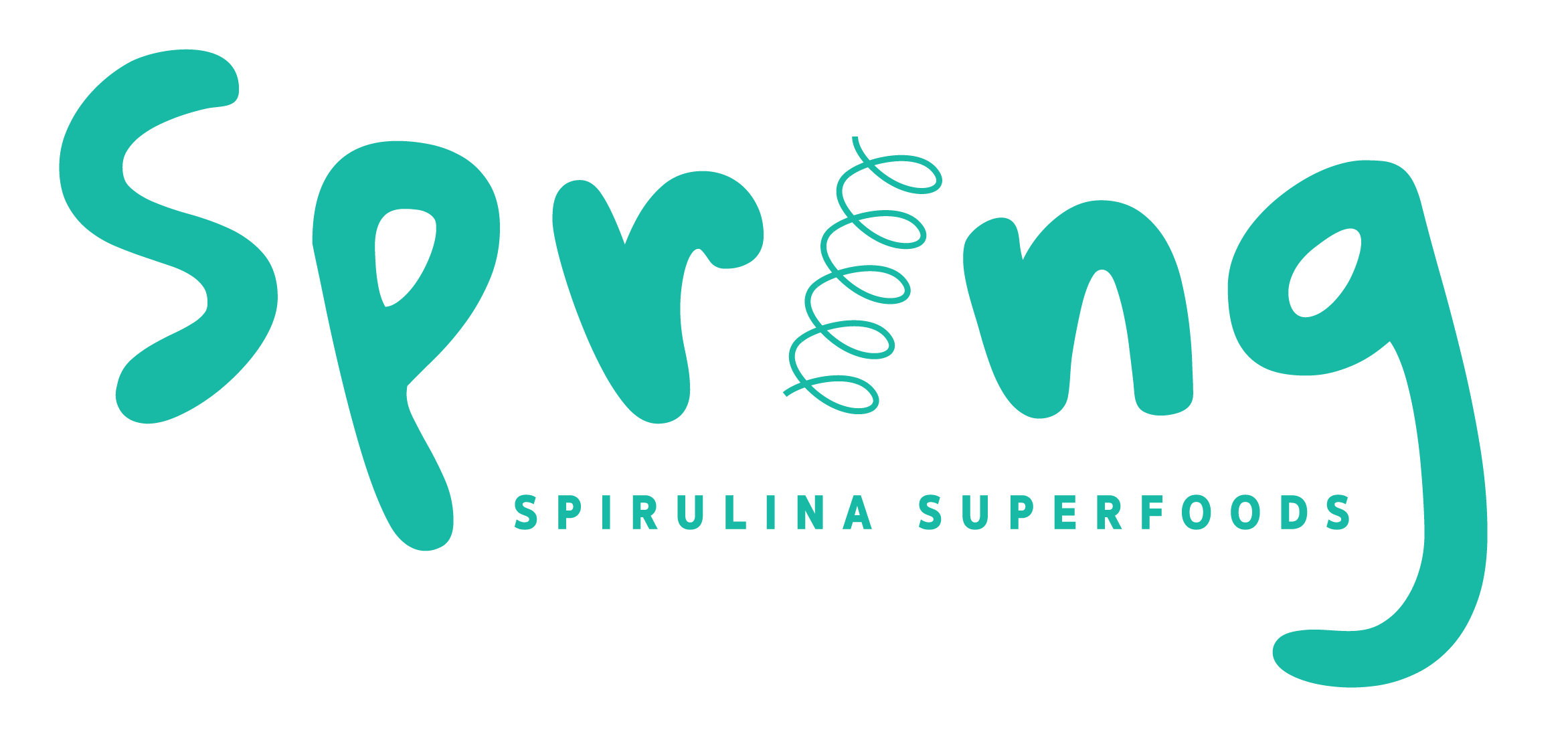Exceptionally high protein content
- ~ 55-70% of its dry weight is protein
- ~ contains all 8 essential amino acids making it a complete protein
- ~ highly digestible protein compared to meat sources
High in provitamin A (beta-carotene)
- 1 gram of Spirulina covers the daily requirement for a normal adult
Very high mineral concentration including iron, phosphorus, potassium, calcium, magnesium, selenium, and iodine.
- ~ more iron than beef
- ~ more potassium than bananas
- ~ more calcium than whole milk
Excellent source of zinc
- helps to maintain a healthy immune systems
Exceptional source of gamma-linolenic acid (GLA)
- ~ Spirulina is the second richest source of GLA after breast milk
- ~ GLA has been proven effective in the treatment of autoimmune disorders, arthritis, eczema and PMS.
- ~ Spirulina also contains zinc, vitamins B6 and B3 required for the conversion of GLA into the beneficial prostaglandins in the human body.
Vitamins B1, B2, B3, B5, B6, B7, B8, B9, C, D, E and K.
All 8 essential amino acids that the body does not synthesize
- ~ isoleucine – required for optimal growth
- ~ leucine – stimulates brain function
- ~ lysine – needed for producing antibodies, enzymes and hormones
- ~ methionine – antioxidant properties
- ~ phenylalanine – required for thyroid function
- ~ threonine – improves intestinal and digestive function
- ~ tryptophane – regulates serotonin
- ~ valine – stimulates mental and physical capacity
15 pigments including Chlorophyll and Phycocyanin which is found only in Spirulina
- pigments which give Spirulina its deep green-blue color are powerful antioxidants and serve to increase the bioavailability of other minerals
Glycogen
- Spirulina is the only plant source of Glycogen which is a bioaccessible glucose utilized to deliver immediate and long term energy.
Powerful source of antioxidants
- Spirulina contains a powerful range of potent antioxidants making it one of the most effective antioxidant food sources.
EFA’s
- Spirulina contains the needed Omega 3 and essential fatty acids
